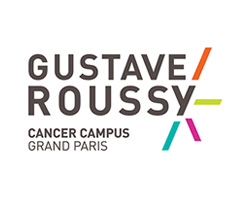Clinical benefit of anti-PD-(L)1 immunotherapies in advanced cancer in France : a population-based estimate from 2014 to 2021
Résumé
Background : In France, the potential benefit of new treatments is initially evaluated by the Haute Autorité de Santé to determine reimbursement and pricing, but rarely afterwards. Although immunotherapies (ITs) have considerably improved the survival of patients, few data are available on their long-term benefit at a population-treated level. The present retrospective study aimed to assess the clinical benefit of ITs compared to the previous standards of care (SoCs) in France from 2014 to 2021.
Materials and methods : To do this, we analyzed all ITs from the anti-programmed cell death protein 1/programmed death-ligand 1 [anti-PD-(L)1] class used in monotherapy or in association with another treatment available in early access or reimbursed in France between 2014 and 2021, regardless of indication. The number of patients initiating an IT was retrieved by year, drug and indication. Using extrapolated Kaplanu2013Meier curves, utility scores and the population treated, the clinical benefit was expressed as the number of deaths prevented (DP), life-years (LYs) and quality-adjusted life years (QALYs) gained compared to previous SoC.
Results : Across the period, five ITs were marketed in 21 indications related to eight primary tumor sites. Between 2014 and 2021, 132 924 patients initiated an IT. By December 2021, 16 173 (13 804-17 141) deaths were delayed compared to previous SoC, mainly in lung cancer. Compared to their SoC, ITs provided a gain of 37 316 (33 581-41 048) additional LYs and 27 709 (23 784-30 450) additional QALYs. Lung cancer was the driver indication with 70.6% of LYs and 68.4% of QALYs gained followed by melanoma with 18.7% and 20.4% of the gain, respectively.
Conclusions : Significant gains in DP, LYs and QALYs have been observed in France following the introduction of ITs.




